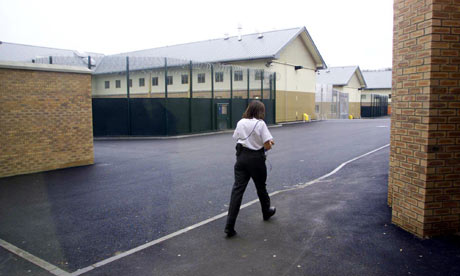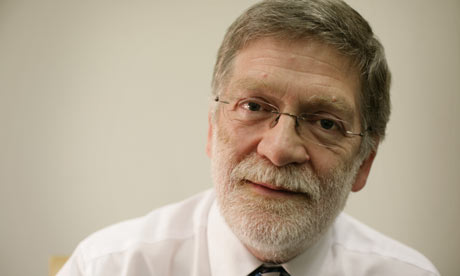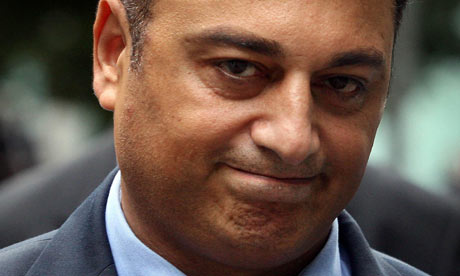The Strasbourg Court is a source of hope for many – its continued effective functioning must be guaranteed
By Commissioner HammarbergThe European Court of Human Rights has been overwhelmed by the response from ordinary people all over Europe. More than fifty thousand applications were received during 2009 and the number of pending cases is now well over one hundred thousand. These figures underline the need to reform the proceedings of the Court – but above all the necessity to improve human rights protection at national level. The main message brought by this massive inflow of cases is that the Strasbourg Court is essential to many individuals who feel that their rights have not been protected in a European state. In four out of five judgments delivered since 1959, it has found at least one violation of the Convention by the respondent state.
In order to cope, the Court has taken steps to improve its efficiency. The annual number of final judgments has more than doubled during the past decade. With the entry into force of the well-known Protocol N° 14 there will be further possibilities to streamline the procedures and strengthen the Court’s efficiency.
However, there is no doubt that further measures are needed in order to avoid the Court being drowned under its workload. It is imperative that the quality of the decisions be maintained, that judgments be delivered within a reasonable time and, above all, that they be executed fully and effectively by states concerned.
The relevance of the Court is obvious because of the concrete effects of its decisions on peoples’ lives, irrespective of their status.
However, the Court is also relevant beyond the individual cases through the fact that the European Convention on Human Rights has been incorporated into domestic law in all member states of the Council of Europe. Rulings by the Strasbourg Court thereby function as the most authoritative interpretation of that piece of national law – for all member states.
The forthcoming accession to the Convention by the European Union will add to the significance of this dimension of the system.
The key characteristic of this system is the right to individual petition – the fact that all 800 million individuals in the Council of Europe area have the right to seek justice, as a last resort, at supranational level. Human rights oriented government representatives and civil society activists in other parts of the world are studying this unique European model and draw inspiration.
To safeguard the effectiveness - and thereby the credibility - of this remarkable institution there will be a need for further reforms. One major problem is that its functioning is hampered by having to deal with many applications which are clearly inadmissible or manifestly ill-founded. In fact, no less than ninety per cent of the applications received belong to this category. This begs for more serious efforts to spread information in member states about the procedures.
Furthermore, there is a serious problem of ‘repetitive cases’. About fifty per cent of the cases declared as admissible do actually raise issues that have already been subject to the Court’s judgments. Therefore, they should really have been resolved by the respondent states within their respective national systems.
This confirms that there is a serious gap of systematic implementation of the Court judgments. These require a prompt, full and effective execution so that recurrence of similar violations is prevented. In fact, effective embeddedness of the Convention’s standards in domestic law and practice is far from being attained in a number of countries in spite of strong recommendations from the Committee of Ministers1.This is problematic as the credibility of the European human rights protection system ultimately depends on whether the standards are made effective in practice.
The discussion about the difficulties of the Strasbourg Court must to a larger extent focus on the need for prevention. The main question is not why the Court has difficulties coping, but why so many individuals feel the need to go there with their complaints.
The conclusion is that much more must be done to protect human rights at home, at domestic level. The European system can in no way act as a long-term substitute for the national systems.
In order to bridge the implementation gap, governments need to work out a systematic and holistic strategy that would ensure the full realisation of the European human rights treaties, starting of course with the Convention and the Court’s case-law. The development of a national plan for the implementation of the human rights obligations would be an ideal framework for such a systematic approach2.
* It could start with a national baseline study giving a broad and accurate picture of the current human rights situation in the country. A thorough evaluation of existing policies and practices and recognition of problematic areas would the basis. The degree of implementation of the international treaties would be assessed as well as the response to the Court decisions (including the leading judgments relating to other countries). The appointment of an inter-ministerial committee for this task – as was done in Poland and Sweden – can be very helpful.
* The next major step should be the development of a national human rights action plan to address the human rights challenges identified in the baseline study. Such plans should contain concrete activities and indicate the authorities responsible for their implementation. The activities should be coupled with time-frames and benchmarks for follow-up and evaluation. International reporting obligations should be integrated into the process.
* States should involve all stakeholders in these processes, including Ombudsmen and other national human rights structures, civil society and representatives of disadvantaged groups of people. Such an inclusive and participatory approach will contribute to the legitimacy of the plan, create shared ownership and make implementation effective.
* The implementation of action plans should be reviewed in a regular way and there should be an independent evaluation of results upon their completion. It is equally as important to assess the process, in terms of participation, inclusiveness and transparency, as it is to evaluate the end result.
* States should ensure high-level and long-term support for the action plans through the active involvement of politicians and the leadership of the authorities and agencies responsible for the plan’s implementation. Action plans stretching over national and local elections should be discussed and/or adopted by parliaments to ensure continuity.
* The human rights planning should be coordinated with the budgetary process to secure proper funding for human rights work. It is necessary to review budget proposals from a human rights perspective to inform politicians of the consequences of their decisions and to hold them accountable.
* A significant part of this policy should be to integrate human rights into the ordinary work of the public administrations and to ensure effective coordination and cooperation between the authorities at all levels by setting up networks or other fora for discussion and exchange of experiences.
* Local authorities should be encouraged to develop comprehensive local baseline studies, action plans or similar documents ensuring regular reviews of the local situation and coordinated efforts to address human rights challenges. Adequate systems should be established for monitoring the provision of health care, education or social services, whether provided by private or public actors, using the rights-based approach.
* It is essential to set up adequate systems for data collection and analysis, including data on disadvantaged groups of people. Collection of sensitive data should be voluntary and accompanied by proper safeguards to prevent the identification of individuals belonging to a particular group. Official data should be complemented with relevant information from national human rights structures and from NGOs.
* The independence of the Ombudsmen and other national human rights structures must be respected. They should have sufficient resources to fulfil their role. Consideration should be given to establishing such institutions at the regional or local level to facilitate easy access for ordinary people. These bodies, if adequately resourced, may also facilitate the establishment of national systems of information on the Convention and the Court’s procedures and make this information easily accessible for every interested individual.
* Fostering a human rights culture through the full integration of human rights in education and training as well as through awareness-raising is another major building block. It is essential that concrete and accessible language be used in all human rights education. The educational needs of public officials and other professionals who deal with the human rights of others should be assessed to ensure that they have a thorough and up-to-date knowledge of the international standards relevant to their field of competence.
A serious package of reforms along these lines would improve the protection of human rights in any country. It would respond to the fundamental principle of subsidiarity which is enshrined in the Convention. The ideal is that each individual is able to seek and receive justice at home.
Other parts of the Council of Europe – including my own office and the Directorate General of Human Rights and Legal Affairs - offer advisory services to member states in order to facilitate such systematic measures for the domestic realisation of human rights.
These efforts will only give the desired results if governments give them much higher priority than hitherto. Even so, their implementation will take some time which in turn underlines the need for immediate reforms of the Court proceedings in Strasbourg.
Indeed, this Court will never be redundant, even if a large number of cases now coming there would instead be satisfactorily resolved at national level. The wisdom of the Court will continue to be decisive in key cases when we need an authoritative interpretation of the Convention
Thomas Hammarberg
1. CM Recommendations (2004) 4, 5, 6 of 12 May 2004 as key components of the “reform package”. (back)
2. See also Commissioner’s Recommendation on systematic work for implementing human rights at the national level, CommDH (2009)3, 18/02/2009. (back)
UPDATE:
I decided to leave them the following comment...
"The Strasbourg Court is a source of hope for many – its continued effective functioning must be guaranteed"
What hope do the convicted prisoners in the UK have of voting at the next UK general election? It is 5 years since the Court decided Hirst v UK(No2). Where is the effective functioning when the Court and the Committee of Ministers and Council of Europe keeps letting the UK get away with not implementing the Court decision? Must be guaranteed? It is no good speaking the words if your actions and the actions of the UK fail to deliver upon that guarantee. Actions speak louder than words. The Association of Prisoners asks 'How do you get a court decision implemented?'.




 It’s expensive to lock people up, says Phil Wheatley, head of the National Offender Management Service. Photograph: Martin Godwin
It’s expensive to lock people up, says Phil Wheatley, head of the National Offender Management Service. Photograph: Martin Godwin






 Metropolitan police officer Ali Dizaei was attacked in prison and is now in seclusion. Photograph: Lewis Whyld/PA
Metropolitan police officer Ali Dizaei was attacked in prison and is now in seclusion. Photograph: Lewis Whyld/PA








 Kate and Gerry McCann - The child killers of Rothley
Kate and Gerry McCann - The child killers of Rothley


 Hug a hoodie because he's my buddy!
Hug a hoodie because he's my buddy!